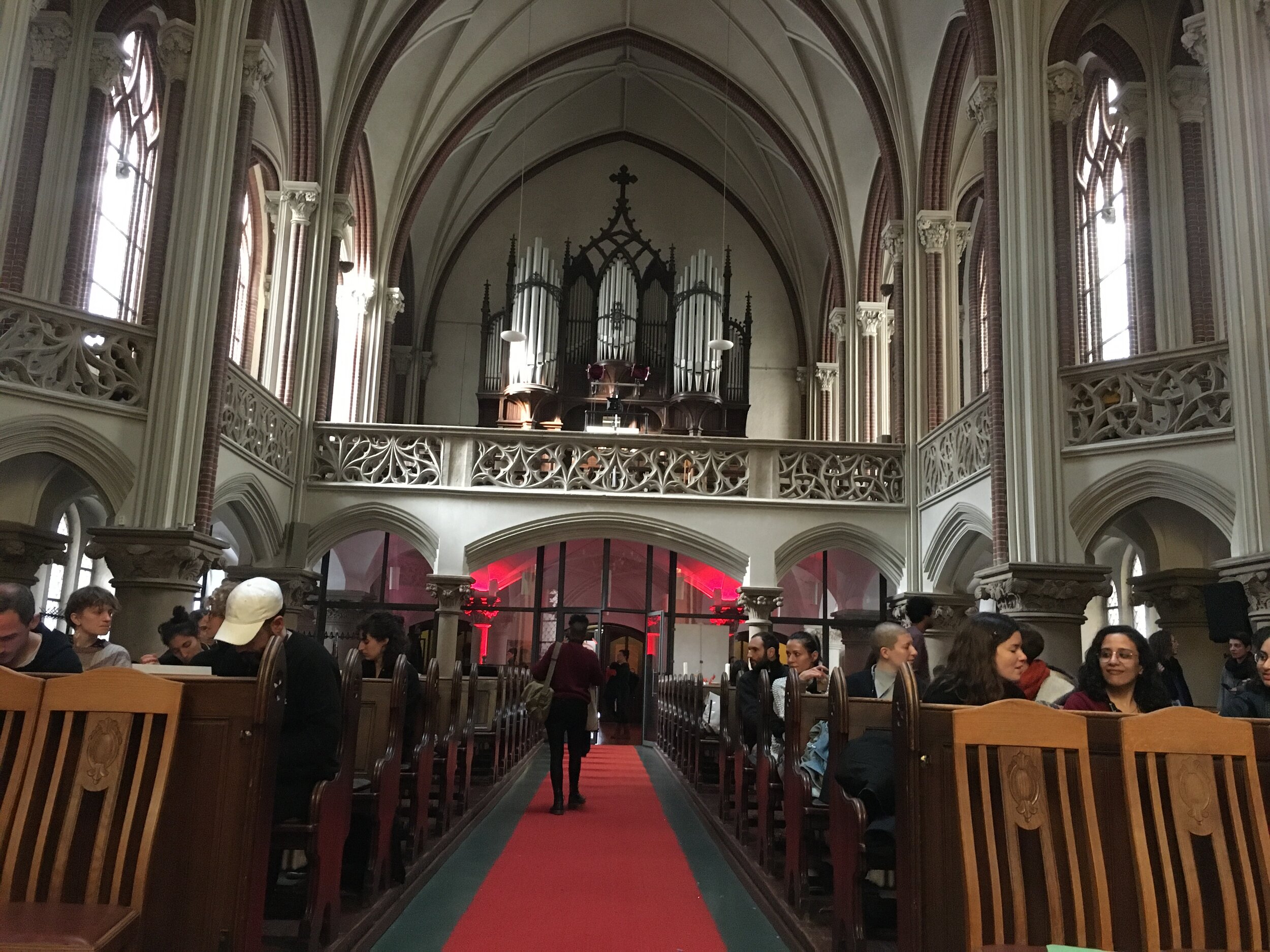“We are a collective of Black feminists who have been meeting together since 1974. [1] During that time we have been involved in the process of defining and clarifying our politics, while at the same time doing political work within our own group and in coalition with other progressive organizations and movements. The most general statement of our politics at the present time would be that we are actively committed to struggling against racial, sexual, heterosexual, and class oppression, and see as our particular task the development of integrated analysis and practice based upon the fact that the major systems of oppression are interlocking. The synthesis of these oppressions creates the conditions of our lives. As Black women we see Black feminism as the logical political movement to combat the manifold and simultaneous oppressions that all women of color face.”
-Combahee River Collective
Dice Conference Room, November 2019
On 1 November 2019 lecture for the DICE Festival Berlin, Dr. Luiza Prado and I spoke about collectivity, our journey, and our quest to community. We convened in Kreuzberg and converted a church into a feminist space where we centered marginalized voices. We prepared the room by burning sage, brewing tea, and arranging food. We asked the audience to write about what collective meant in their native language. For ten minutes or so, we discussed these various definitions with the participants in the room.
Edna Bonhomme and Luiza Prado.
What we found is that although identity can be an entry point to forming a collective spirit, it is not the only pathway. What we concluded was that care is a Central part of Collective Work, not only because it provides us nourishment, but because it gives us an entry point to radicalize our social relations. Under capitalism, our labor (both reproductive and productive), can be undervalued, but that odes not mean that we cannot undo the damage. As such, we concluded that it is imperative to make time to rest. Naps are okay. Tension is as well. However, the key for our collective work is to take an intersectional approach, not on a superficial level but one that challenges systems of oppression, one that centers the most marginalized voices, and one that disrupts the master’s tools.

